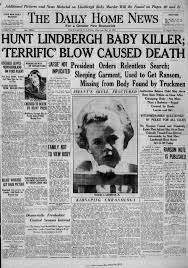Jack Havig is born in February, 1933. At this stage, the text is mainstream fiction - although the narrator, Robert Anderson, paves the way by referring to genetic codes as not yet thought of and to Einstein's work as not yet dwelling among men.
Anderson lists recent bad news:
the Japanese conquest of Manchuria;
a bonus march on Washington;
the Lindbergh kidnapping;
Hitler becoming Chancellor -
- and good news:
a new President;
the imminent end of Prohibition -
- adding that:
"...springtime in these parts is as lovely as our autumn." (p. 10)
Thus, Poul Anderson begins this novel by referring to spring and autumn, a beginning and end - and both are good.

8 comments:
Kaor, Paul!
I am a conservative, with some sympathy for libertarian ideas, which means I do NOT regard Franklin D. Roosevelt's election as President in 1932 as good for the US. Because his futile, mostly counterproductive policies, with some exceptions like the building of the Hoover Dam, did little or nothing to end the Great Depression. To say nothing of how those policies led to a steady concentration of more and more power in the central gov't, with all the bad things you have to expect from that centralizing!
Ad astra! Sean
Sean,
Indeed. I was reproducing the tone of Robert Anderson's reflections.
Paul.
Kaor, Paul!
Of course! I was thinking of how I would argue with Dr. Anderson about his apparent sympathy for FDR. Jonah Goldberg, in his book LIBERAL FASCISM, has a long scathing discussion of the ideas favored by Roosevelt and those around him.
Ad astra! Sean
Sean,
Again of course but these arguments are interminable. Robert Anderson expresses hope when FDR is elected and some disillusionment later. What we mainly have to do here is appreciate how PA captures the spirit of the times.
Paul.
Kaor, Paul!
Certainly, I agree.
Ad astra! Sean
Yup.
I don't agree with everything FDR did, by the way -- he had some notable failures -- but on the whole, he was a major factor in the US getting through the 30's as well as it did.
And he played an absolutely -crucial- role in getting the US into WWII in time to affect the outcome.
I've studied that in some detail, and it required both luck and a masterful political hand.
Incidentally, don't judge FDR's actual view of Stalin by the propaganda put out at the time.
As Churchill said, if Hitler invaded Hell, he'd find something favorable to say about Satan in his next speech.
There were many credulous idiots around, some in high places, but FDR knew that Stalin was an evil bastard.
Not -how- evil, but basically, yeah. He played a weak hand at Yalta; there really wasn't much he could do to prevent the Soviets from taking over most of eastern Europe by then. And he -did- overestimate how much "dealing" he could do with him, and his own charm, but that's another matter.
Note that by 1933, things in the US were very bad indeed, and unlikely to get better; they were much worse than in Britain or France, and nearly as bad as in Germany.
This was having a politically radicalizing effect; order was breaking down in some areas you wouldn't think of in those terms, like rural Iowa. A third of the population was actually going hungry, formerly prosperous farmers were having their farms sold off over their heads, families were being smashed, more and more people were terrified and getting extremely angry and desperate.
The New Deal didn't end the Depression -- in 1940, even with the WWII buildup starting, unemployment was still 17% -- but it did -politically neutralize- the Depression.
Plus a lot of positive things came out of it; the WPA/CCC, for example.
Kaor, Mr. Stirling!
If FDR managed to neutralize political radicalism so that events in the US would not go the way they did in Germany or Italy, I have to grant him credit for that much. But I still don't like many of his so called New Deal policies, with a few exceptions like the WPA/CCC.
Even if the US/UK could not prevent Stalin from grabbing eastern Europe, I still have to wonder if more could have been done to restrain his greed. E.g., did we have to let him take over Bulgaria? The USSR did not invade that luckless country until Jan. 1945. Before then Stalin could have been forced to agree he would leave it alone.
And I think FDR handled the BEGINNING of the US' involvement in WW II badly. My view is he foolishly underestimated Japan and did not take seriously enough the chances of the Japanese going crazy and ATTACKING the US at Pearl Harbor.
Ad astra! Sean
Post a Comment